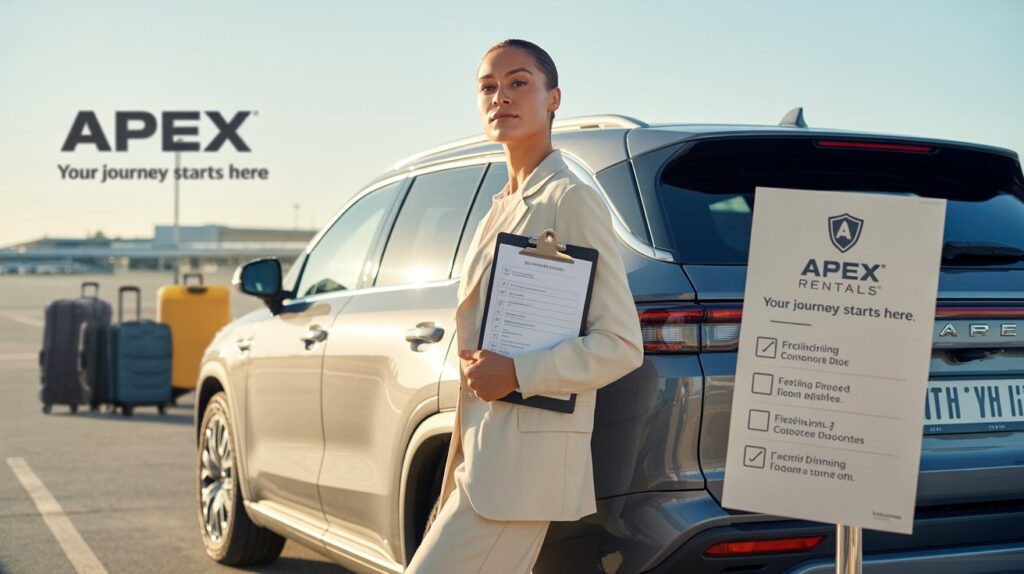Renting a car offers flexibility and freedom, whether you’re exploring a new city, traveling for business, or temporarily without a vehicle. But at the rental counter, you’re likely to face a critical and often confusing question: Do you need rental car insurance?
The answer isn’t always simple. It depends on your personal auto insurance policy, the credit card you use, the country you’re in, and even the type of car you’re renting. This guide aims to demystify the topic by giving you the information you need to make an informed, confident decision.
Understanding Rental Car Insurance Basics
Before deciding whether to accept or decline insurance at the rental counter, it’s essential to understand what rental car insurance actually covers and how it differs from traditional auto insurance.
What Is Rental Car Insurance?
Rental car insurance is a collection of coverage options offered by rental companies to protect you financially if the rental car is damaged, stolen, or involved in an accident. These coverages often come as optional add-ons and are charged daily. Understanding these options is the first step toward making a smart financial decision.
Types of Coverage Offered by Rental Companies
Here are the typical insurance options you’ll encounter:
1. Loss Damage Waiver (LDW) / Collision Damage Waiver (CDW)
This isn’t technically insurance but a waiver that frees you from financial responsibility if the car is damaged or stolen. It may also cover towing and loss-of-use charges. Declining this could make you liable for the full value of the car if it’s damaged or stolen, even if the incident wasn’t your fault.
2. Supplemental Liability Insurance (SLI)
This provides additional liability coverage beyond the minimum required by law, covering bodily injury and property damage to others. In many cases, your personal liability coverage will extend to rentals, but this varies by provider.
3. Personal Accident Insurance (PAI)
Covers medical expenses for you and your passengers in case of an accident. While your health insurance might provide coverage, PAI could reduce your out-of-pocket expenses.
4. Personal Effects Coverage (PEC)
Insures personal belongings that are stolen from the rental car. This might overlap with your homeowners or renters insurance, but check your policy to be sure.
What Your Personal Auto Insurance May Already Cover
If you own a car and have auto insurance, you may already be covered for many of the situations rental car insurance is designed to protect against.
Collision and Comprehensive Coverage
If your personal policy includes comprehensive and collision coverage, it likely extends to rental cars within the U.S. and Canada. That means if the rental is damaged in a crash or stolen, your policy could pay for repairs or replacement. However, you’d still be responsible for the deductible.
Liability Coverage
Most personal auto insurance policies include liability coverage that extends to rentals. However, it may only meet state minimums, which could be insufficient in a serious accident. If someone is severely injured or property damage is extensive, you could be on the hook for significant costs beyond what your policy covers.
What’s Typically Not Covered
- Loss of use fees charged by the rental company while the car is being repaired.
- Diminished value of the car post-accident.
- Administrative fees associated with damage claims.
- Rentals outside the U.S. and Canada.
- Exotic or luxury vehicles.
How Credit Card Benefits Can Help
Many credit cards, especially travel-focused ones, offer rental car insurance as a perk. However, the protection varies widely, and not all cards offer it.
Primary vs. Secondary Coverage
- Primary coverage pays out before your personal auto policy, keeping your insurance record clean.
- Secondary coverage kicks in only after your personal policy has been exhausted, usually covering deductibles or gaps.
Cards like the Chase Sapphire Preferred, Chase Sapphire Reserve, and American Express Platinum often provide primary rental coverage if you decline the rental company’s insurance and pay for the rental with the card.
What’s Typically Covered
- Collision and theft
- Towing and roadside assistance (in some cases)
- Loss of use fees (depends on the card issuer and documentation)
What’s Not Covered
- Liability to others
- Personal injury or death
- Personal belongings inside the car
- Rentals over a specific duration (typically more than 30 days)
- High-risk countries or luxury/exotic vehicles
Best Practices
- Always use the credit card for the full cost of the rental.
- Decline the rental company’s LDW/CDW.
- Check your credit card benefits guide for restrictions.
When You Should Buy Rental Car Insurance
Even if you’re covered elsewhere, there are times when purchasing rental insurance is the safer or more convenient choice.
1. You Don’t Have Auto Insurance
If you don’t own a car and thus don’t carry auto insurance, purchasing coverage from the rental company is often necessary unless your credit card provides robust coverage.
2. You Want to Avoid a Claim on Your Policy
Even if your personal insurance covers rental cars, filing a claim could raise your premiums. Using rental insurance allows you to avoid that risk and hassle.
3. You’re Traveling Abroad
Most U.S. auto insurance policies do not cover rentals outside the U.S. and Canada. In Europe, Asia, or South America, you’ll likely need to purchase coverage locally or via travel insurance.
4. You’re Renting an Expensive or Specialty Vehicle
Luxury cars, exotic sports cars, or large trucks may not be covered by your personal policy or credit card benefits. Rental insurance may be the only option.
5. You’re on a Business Trip
Some policies and credit cards exclude coverage if the rental is for business use. Check your terms carefully, especially if you’re a freelancer or consultant.
6. You Want a Stress-Free Experience
Having the rental company’s full coverage can simplify everything in the event of an accident. No dealing with your insurance or card issuer—just hand the keys back.
Hidden Costs and Pitfalls to Avoid
Rental car companies often apply fees and restrictions that can catch renters off guard. Understanding them upfront can save you time and money.
Loss of Use and Administrative Fees
Even if your insurance covers the damage, the rental company may charge you for revenue lost while the vehicle is out of service and for processing the claim. Most insurance policies and credit cards do not reimburse these charges unless the rental company provides specific documentation.
Damage Detection Technology
Many companies now use AI or automated systems to detect scratches or dents. These systems can flag even minor damage, leading to disputes. Always:
- Take time-stamped photos and videos before and after your rental.
- Ask a staff member to inspect the car with you.
- Document even small scratches or dents before driving off.
Deductibles and Exclusions
Some rental insurance policies come with high deductibles or exclude certain types of damage (e.g., to tires, rims, windows, or the undercarriage). Always read the fine print before purchasing.
Third-Party Rental Insurance Options
You’re not limited to the rental counter or your credit card. Several third-party companies offer standalone rental car insurance.
Benefits of Third-Party Coverage
- Often cheaper than rental company insurance
- Covers similar or broader risks
- May include extras like roadside assistance
- Available for international rentals
Popular Providers
- Allianz Global Assistance
- Bonzah
- Insure My Rental Car
- RentalCover.com
- Travel Guard
Rates typically range from $6 to $15 per day, and policies can be bought online in minutes. This is an excellent alternative for travelers without auto insurance or those who want to avoid using their personal policy or credit card benefits.
A Step-by-Step Guide to Choosing Rental Car Insurance
Step 1: Check Your Auto Insurance
- Confirm whether it includes collision, comprehensive, and liability for rentals.
- Review your deductible and potential impact on premiums if a claim is filed.
Step 2: Review Credit Card Benefits
- Determine if your card offers rental coverage.
- Identify if it’s primary or secondary.
- Ensure you use the card for the rental and decline the rental company’s LDW/CDW.
Step 3: Consider Travel Insurance
- If traveling internationally, check if your travel insurance includes rental car protection.
- Some travel policies offer comprehensive car rental coverage.
Step 4: Assess Risk Factors
- Consider the location, duration, vehicle type, and whether you’re on business or vacation.
- Evaluate local driving laws, road conditions, and accident rates.
Step 5: Decide Based on Total Coverage
- Weigh the cost of rental insurance vs. potential out-of-pocket expenses and hassle.
- If peace of mind is a priority, rental insurance may be worth the cost.
FAQs
Do You Need Rental Car Insurance if You Have Personal Auto Insurance?
Not always. If your policy includes full coverage and you’re renting domestically, you may be adequately covered. However, watch for gaps like loss-of-use fees and administrative costs.
Does Rental Insurance Cover Liability?
Only if you purchase Supplemental Liability Insurance (SLI) from the rental company or have it included in your personal policy.
What Happens if I Decline Insurance and Get in an Accident?
If you’re not covered by personal insurance, credit cards, or third-party providers, you could be responsible for the full cost of repairs, loss-of-use, and liability claims.
Can I Use a Debit Card Instead of a Credit Card for Insurance?
Most credit card insurance benefits only apply if you pay with that credit card. Debit cards usually don’t offer rental car coverage.
Is It Cheaper to Buy Rental Car Insurance from a Third Party?
Yes, third-party providers often offer comparable coverage at a lower cost than rental car companies.
What Countries Require Proof of Insurance for Rentals?
In some European countries like Italy and Ireland, rental companies may require you to show proof of insurance or buy coverage through them. Always research your destination’s requirements in advance.
Do I Need Insurance for a Peer-to-Peer Car Rental?
Services like Turo or Getaround often offer their own insurance packages. Your personal insurance or credit card may not apply, so purchasing the platform’s coverage is usually advisable.
Conclusion: Making the Smart Choice
So, do you need rental car insurance? The answer depends on your individual circumstances. If you have solid personal auto insurance and a credit card with primary coverage, you may be able to confidently decline rental company coverage. But for those without insurance, traveling internationally, or concerned about the hassle of claims and possible out-of-pocket costs, buying insurance can offer peace of mind.
The key is to plan ahead. Review your existing coverage, understand your options, and make an informed decision before you arrive at the rental counter. That way, you won’t be pressured into an expensive and possibly unnecessary policy—and you’ll be free to enjoy the road ahead.
By taking the time to understand your coverage, weigh your options, and choose wisely, you’ll avoid unnecessary expenses and gain confidence in your rental experience. Whether you’re driving through the mountains of Colorado or navigating the streets of Rome, the right rental car insurance choice will help keep your trip on track and worry-free.












